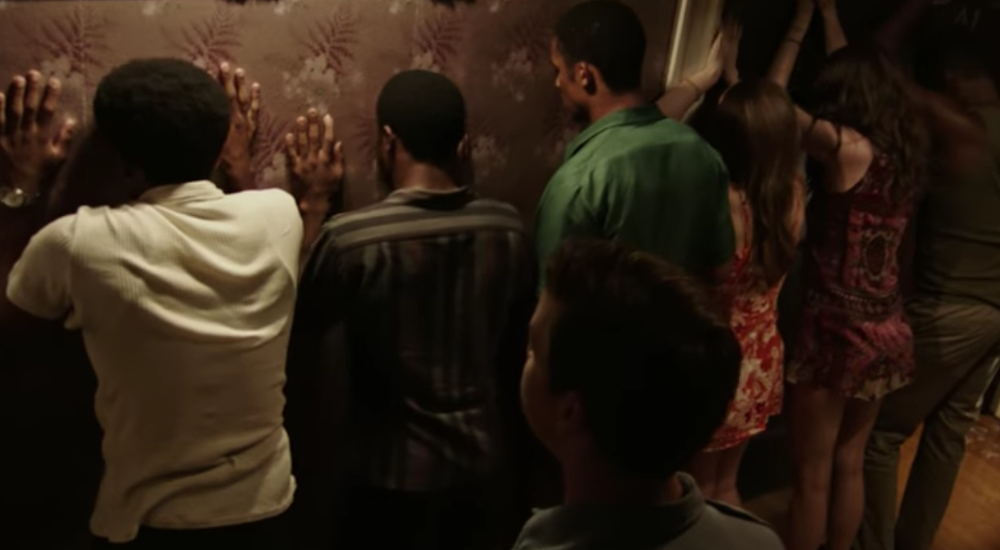“This is Detroit. We don’t bluff.”
For a movie that tells a true story of death and destruction, Kathryn Bigelow’s Detroit begins very strangely. A montage of crude, animated images fill the screen, plotting the history of African-American migration from the South to North, as well as the prejudice that has greeted and handcuffed the black population over the years. Appearing a lot like paper cutouts, the images make you ponder the forthcoming story as you question just why such a serious subject matter is being introduced through the lens of a children’s picture book. Thankfully the illustrations pave way to actual events, opening up on Detroit during late July, 1967.
The opening scene, which shows a police raid on an after-hours illegal drinking club, quickly sets the tone, allowing viewers to better understand the tensions that currently exist within Detroit. The bar’s customers, entirely African-American, are escorted outside and arrested. A crowd assembles to protest the raid, and for a lack of a better expression, all hell breaks loose. For days the riots continue, hardly loosing any steam as tensions intensify. Just as we begin to question just how Bigelow will dial down the surrounding noise and focus in on something particular, we come face to face with the young adults who are staying in the annex at the Algiers Motel.
While the basic overview of events that took place in that hallway on July 25th are known, the exact sequence is a bit more uncertain. In basic terms, shots were heard, reportedly coming from the hotel. Police officers, fearing a sniper attack, moved in. They were soon joined by the state police and members of the National Guard, all of whom share different recollections of the exact details. But when the group is pulled from their rooms and forced up against the wall in that hot, damp hallway, it becomes evident that this will be the film’s primary stage that will resonate loudest.
Extended scenes fill the screen as you witness Will Poulter’s Phill Krauss resort to anything and everything in an effort to retrieve the supposed gun. His tactics are sadistic in nature as he spends over an hour intimidating the hotel guests with threats of murder, attacking them individually as he utilizes fear to gain the upper hand. Poulter’s performance is haunting as he fills the room with hate, forcing you to sit in silence as you witness hell on Earth as a sense of helplessness rests in the pit of your stomach.
Bigelow’s camerawork takes you inside that hallway, bringing you face to face with a maniac killer who, earlier that morning, shot a looter in cold blood and didn’t blink an eye to the possibility of murder charges. His arrogance is undeniably insolent as he resonates a sense of evil that sits with you long after the story itself has played out.
Though the story eventually takes you beyond the events of that hallway and into the courtroom where the cops face a panel of their peers, the outcome is nothing other than expected. Tensions flair up as moralistic integrity and righteous behavior intertwine within our characters. Though a handful of scenes are obviously dramatized, the truth behind the events of that frightful evening are intact. The hotel guest’s names are real; those of the three policemen on trail are not. Other details have obviously been changed, though it should be mentioned that Bigelow does a masterful job at meshing the two scenarios together seamlessly, so much so that she felt obligated to compare present day set pieces with historical photographs, almost as if to prove that the story, in all its chaos and pain, is in fact true. The authentic checkup wasn’t necessary, and takes a bit away from the lasting effect - even if filmmakers have felt compelled to do it as of late. Either way, Detroit is not an easy watch. But its success lies in the discomfort as it strikes a bold nerve, continuing the emotional and thought provoking string of successful films that have come out of the Bigelow-Boal collaboration.

